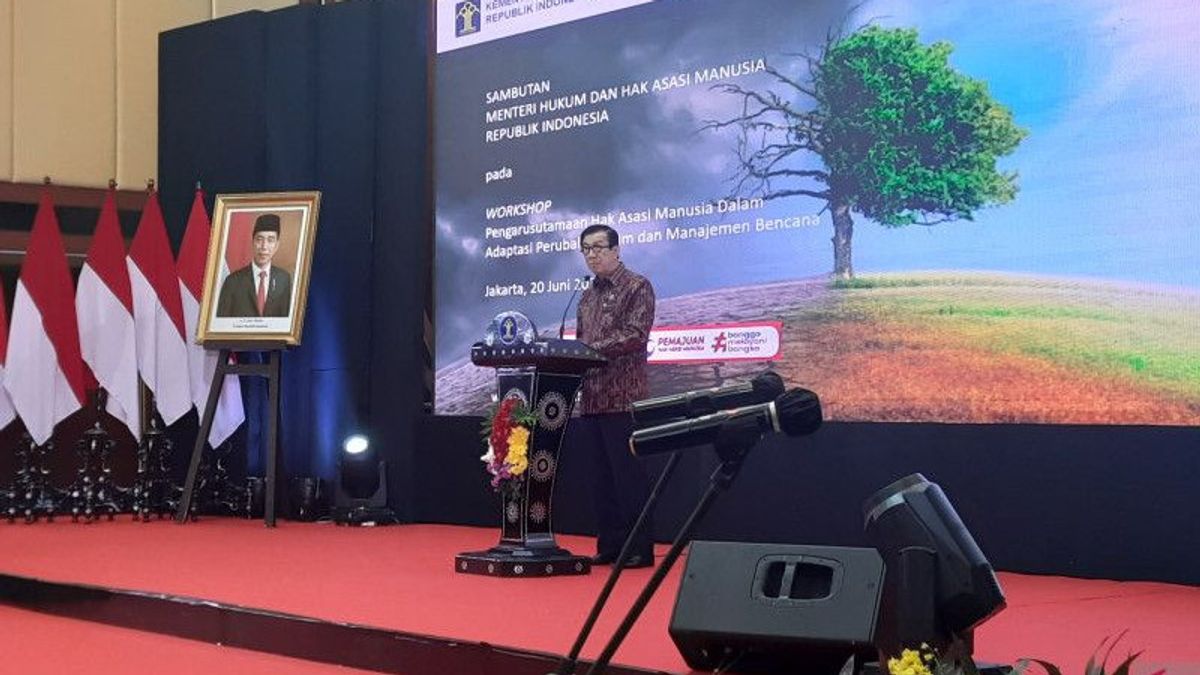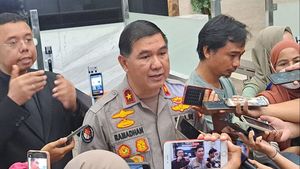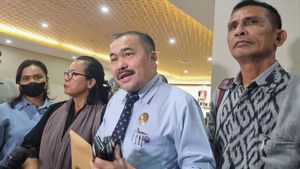JAKARTA - Minister of Law and Human Rights (Menkumham) Yasonna H. Laoly said climate change not only posed physical threats, but also threatened human rights (HAM).
"Climate change and disaster management are issues that require collective action and are in line with human rights principles," Yasonna said at the workshop on 'The Presence of Human Rights in Adaptation of Climate Change and Disaster Management' in Jakarta, Antara, Tuesday, June 20.
He believes that the collaboration of all stakeholders is important in responding to climate change and disasters. Therefore, all levels of society are invited to be more concerned about climate change and disaster management.
"Only through solid and coordinated cooperation can we overcome these challenges and protect human rights for everyone, including future generations," he explained.
Furthermore, Yasonna said that the role of the private sector in the responsibility of protecting human rights in the context of climate change is crucial.
Companies must take social and environmental responsibility by reducing carbon emissions, implementing sustainable business practices, and respecting the rights of local communities in operational areas.
"We must act now to prevent a worse impact in the future, while still ensuring that basic human rights remain respected, protected and fulfilled," he stressed.
In order to encourage increased awareness of the private sector towards human rights, the Government through the Ministry of Law and Human Rights together with related ministries and non-ministerial government agencies (K/L) are finalizing the National Strategy of Business and Human Rights.
"To coincide with the preparation of the National Business and Human Rights Strategy, we also have the PRISMA application. Through this website-based application, we want to assist business actors in analyzing the potential risks of alleged human rights violations caused by their business activities," said Yasonna.
For information, the workshop is a follow-up to the G20 Bali Leaders' Declaration to prevent the negative impact of climate change on the challenges of implementing human rights in Indonesia.
The workshop prepared a recommendation in the form of a brief conclusion of the policy to answer the challenges that surfaced at the meeting last November 2022.
另请阅读:
The English, Chinese, Japanese, Arabic, and French versions are automatically generated by the AI. So there may still be inaccuracies in translating, please always see Indonesian as our main language. (system supported by DigitalSiber.id)
















